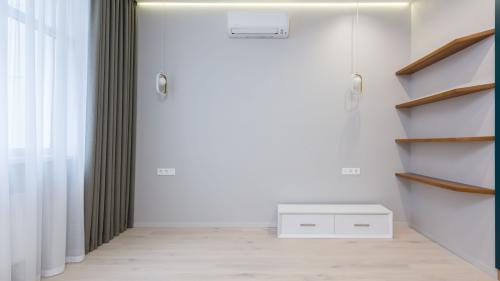Sustainability and AC Wholesalers: How Green Practices are Being Integrated

In recent years, the emphasis on sustainability has permeated virtually every industry, including the HVAC (heating, ventilation, and air conditioning) sector. As the world becomes increasingly aware of the environmental impact of energy consumption and carbon emissions, AC wholesalers are adapting to meet the demand for greener solutions. This integration of sustainable practices encompasses everything from the sale of energy-efficient and eco-friendly air conditioning units to the implementation of environmentally conscious business operations.
The Environmental Impact of Traditional Air Conditioning
Traditional air conditioning systems are notorious for their high energy consumption and significant contribution to greenhouse gas emissions. According to the International Energy Agency (IEA), air conditioners and electric fans currently account for nearly 20% of the total electricity used in buildings worldwide. The demand for cooling is expected to triple by 2050, leading to increased energy use and environmental strain. This rising demand underscores the necessity for sustainable alternatives in the HVAC industry.
Energy-Efficient AC Models
One of the primary ways AC wholesalers are contributing to sustainability is by offering energy-efficient models. These units use advanced technology to cool spaces more effectively while consuming less electricity. Key features of energy-efficient air conditioners include:
Inverter Technology: Inverter ACs adjust the compressor speed to maintain the desired temperature, avoiding the constant start-stop cycles of traditional units. This leads to significant energy savings and more consistent cooling.
Higher SEER Ratings: The Seasonal Energy Efficiency Ratio (SEER) measures the cooling output of an air conditioner divided by its energy consumption. Units with higher SEER ratings are more efficient, reducing both energy costs and environmental impact.
Smart Thermostats and Controls: Smart thermostats allow users to optimize their AC settings, reducing energy waste. Features like programmable schedules and remote control via smartphone apps ensure that the AC is only used when necessary.
Eco-Friendly Refrigerants: Modern air conditioners use refrigerants that have a lower global warming potential (GWP) compared to older models. For instance, R-410A is commonly used as it is more environmentally friendly than the previously popular R-22, which is being phased out due to its ozone-depleting properties.
Eco-Friendly AC Models
Beyond energy efficiency, eco-friendly air conditioners are designed with materials and components that have a reduced environmental impact. Some innovations in this area include:
Sustainable Materials: Manufacturers are increasingly using recycled and recyclable materials in the production of air conditioners. This reduces waste and promotes a circular economy.
Longer Lifespans: Eco-friendly models are built to last longer, reducing the frequency of replacement and the associated environmental cost of manufacturing new units.
Lower Emissions: Advanced filtration systems and cleaner combustion processes in eco-friendly ACs help to lower emissions of harmful pollutants, contributing to better air quality and reduced environmental impact.
Green Business Practices of AC Wholesalers
AC wholesalers are not only focusing on the products they sell but also on how they operate. Here are some ways they are integrating green practices into their business models:
Sustainable Supply Chain Management: Wholesalers are prioritizing suppliers who adhere to environmental standards. This includes sourcing from manufacturers who use sustainable practices and materials.
Energy-Efficient Warehousing: By implementing energy-efficient lighting, HVAC systems, and insulation in their warehouses, wholesalers can significantly reduce their carbon footprint. Solar panels and other renewable energy sources are also being utilized to power facilities.
Eco-Friendly Packaging: Reducing the use of plastic and opting for biodegradable or recyclable packaging materials helps minimize waste. Wholesalers are also encouraging manufacturers to adopt sustainable packaging practices.
Promoting Recycling Programs: Wholesalers are partnering with recycling companies to ensure that old air conditioning units are disposed of responsibly. These programs often include the proper handling of refrigerants and other hazardous materials.
Education and Advocacy: Many AC wholesalers are actively educating their customers about the benefits of energy-efficient and eco-friendly models. By promoting awareness, they encourage consumers to make more sustainable choices.
Challenges and Opportunities
While the integration of green practices in the HVAC industry is promising, it is not without challenges. The higher upfront cost of energy-efficient and eco-friendly models can be a barrier for some consumers. However, this is often offset by the long-term savings on energy bills and the environmental benefits.
There is also a continuous need for innovation and improvement. As technology advances, so do the opportunities for creating even more efficient and environmentally friendly air conditioning solutions. Government incentives and regulations can also play a significant role in driving the adoption of sustainable practices.
Conclusion
The shift towards sustainability in the HVAC industry is a critical step in addressing the global challenges of energy consumption and climate change. AC wholesalers are at the forefront of this movement, integrating green practices into their operations and offering products that align with environmental goals. By embracing energy-efficient and eco-friendly air conditioning models, and adopting sustainable business practices, they are helping to create a more sustainable future for all.
Comments